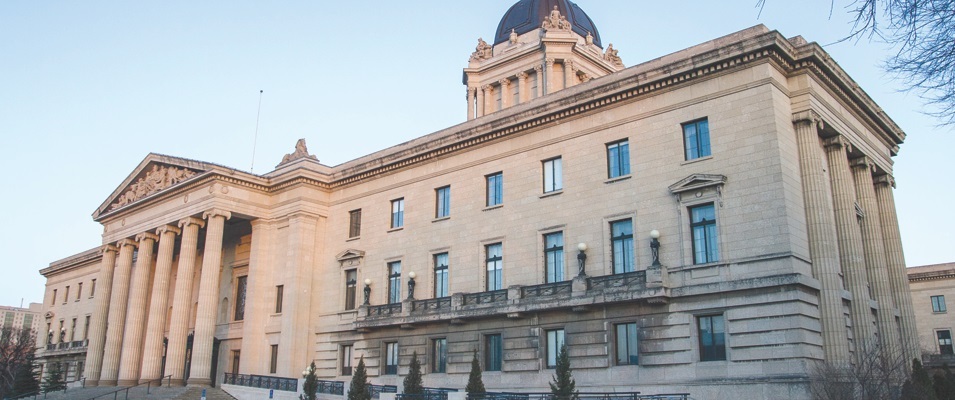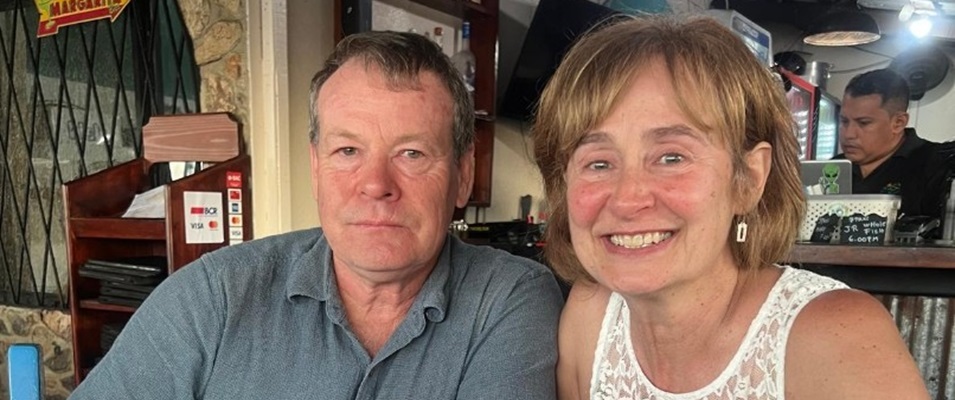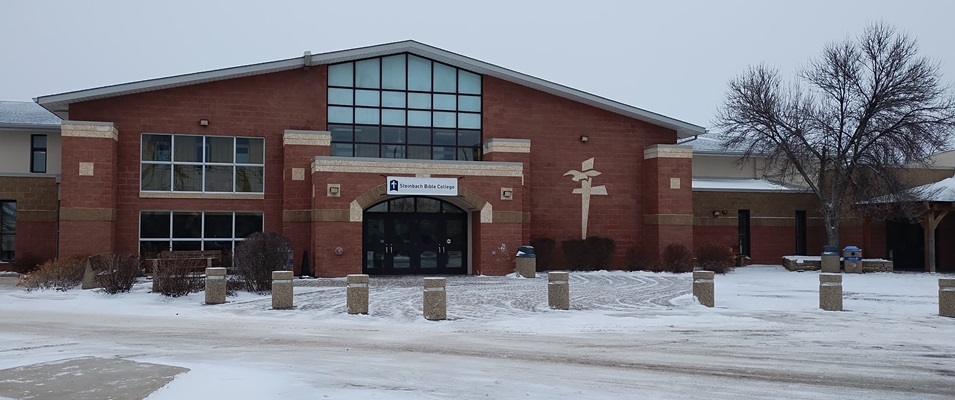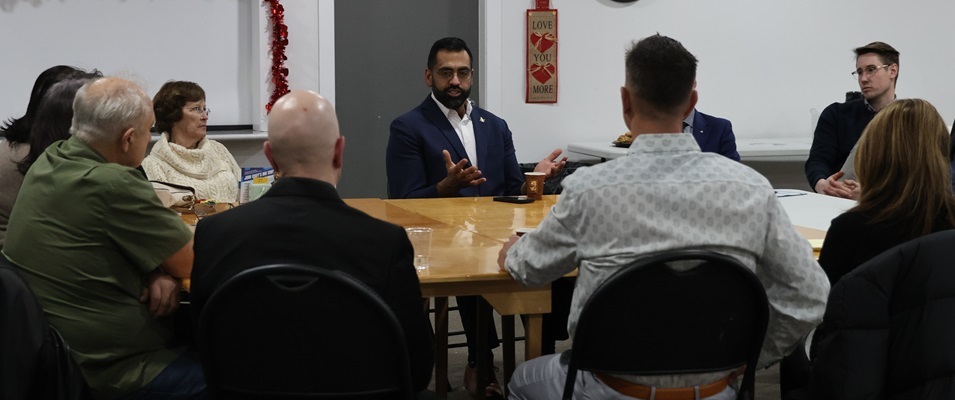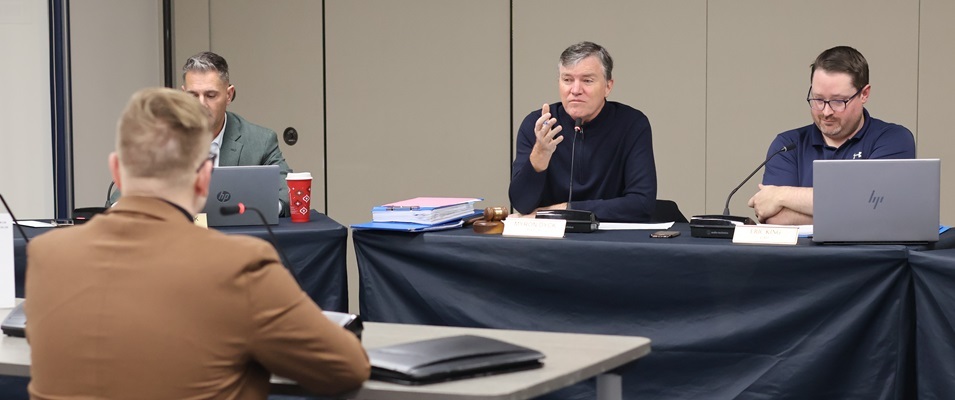
Leah Gazan is the NDP Member of Parliament (MP) for Winnipeg Centre. She’s also the primary reason Bill C-223 is currently being considered by the federal government.
Introduced as a private member’s bill in 2021, Bill C-223 calls for the federal government to create a national Guaranteed Liveable Basic Income (GLBI), a model which she and others believe would help end poverty in the country.
The bill would ensure that not a single Canadian lives below the poverty line.
The primary objective of Bill C-223 is to put pressure on the Canadian government to create a national framework for implementing the GLBI within one year.
The bill has since passed first reading and is scheduled to go to its second reading later this month.
“It imposes on the Minister of Finance [the requirement] to present a report that first determines what constitutes a GLBI for each region of Canada,” says Gazan. “We know that costs of living vary depending on where you live. Second, it establishes necessary health and social supports to complement the GLBI.”
While Gazan was the one to table the bill in Ottawa, she says the bill was developed and drafted by leaders in the basic income movement. In order to create the bill, real-life data and verifiable evidence was used.
Apart from a few specific guidelines, Bill C-223 gives full autonomy to the federal government to develop the specifics of the law. The bill as written requires only that GLBI recipients be determined based on age, income level, and Canadian residency.
Gazan says that the GLBI should be available to all people living in Canada over the age of 17, regardless of their citizenship or immigration status.
Unlike some other basic income programs already in place, recipients of the GLBI would not be required to participate in education, training, or the labour market to receive it.
“It is not meant to gut the social safety net,” Gazan says. “It is meant to augment and improve our current social safety net because we know that current income guarantees are not liveable.”
Examples of Canada’s existing income guarantees include Employment Income (EI) for the temporarily unemployed and Guaranteed Income Supplement (GIS), a supplementary top-up available to low-income Old Age Security pensioners.
“The purpose of our bill is to lift up those current income guarantees and spread them out to folks that are falling through the cracks,” says Gazan. “This includes the many people in our communities living with complex mental health [issues] or the adults that suffer from intellectual disabilities who live under the poverty line.”
Roundtable
On September 11, Gazan hosted an online roundtable to draw public attention to Bill C-223. A panel of four experts spoke to the merits of a GLBI program.
Among them was Evelyn Forget, an officer in the Order of Canada and professor of Community Health Science and Economics at the University of Manitoba (UM).
Forget is also the recent author of the book Basic Income for Canadians: From the COVID-19 Emergency to Financial Security for All. Her interest in the idea of a guaranteed basic income dates back decades and is based on evidence revealed through a pilot project that took place in Dauphin, Manitoba in the 1970s.
The Mincome Experiment
Back in 1975, Manitoba became home to what is considered to have been one of the most ambitious social science experiments ever to take place in Canada. The pilot project was called Mincome, derived from the words Manitoba minimum income.
Designed by a group of economists from the University of Manitoba and the provincial government, and implemented by local policymakers, the goal was to address rural poverty.
More specifically, it was initiated to answer the age-old question of whether financial government assistance would produce laziness and reduce work incentive among its recipients.
Dauphin was chosen due to its remote location, considered to be 100 miles too far from anywhere, as well as its population of 10,000, sizeable enough to provide sufficient data for analysis.
The project ran for four years before it was halted due to the political and economic turmoil of the late 70s. The results of the experiment were packed away and not properly studied until, in 2008, Forget took it upon herself to pour through the mountains of collected data.
What she discovered was that, in the years that Mincome operated, hospitalization rates among participating families fell dramatically.
There were also marked improvements in people’s mental health.
Many of the recipients received dental care for the first time in their lives.
No less significant was the extreme rise in the number of Dauphin children completing high school. At the time, students growing up in low-income settings were inclined to quit school early in order to get jobs to help out their families.
During the years of the Mincome experiment, the number of students likely to graduate in Dauphin exceeded that of Winnipeg.
The experiment also opened the door of opportunity for entrepreneurs. When funding was suddenly pulled in 1979, many small businesses folded as the economy returned to the more difficult conditions in place before Mincome.
Renewed Interest
In more recent years, especially in the wake of the COVID-19 pandemic, interest in a minimum basic income has seen a resurgence.
In order to win over popular opinion, Forget and others say that some myth-busting will be necessary.
In light of current high rates of inflation, Forget says one major area of misconception is that a GLBI policy would simply cost the government too much money and propel inflation rates even higher.
The reality, she says, is that the many income supplement initiatives already available in Canada are badly coordinated, creating overlap in some areas and gaps in others.
As well, these programs are unreasonably expensive to administer because they require so many government employees to police the system. By streamlining the system, she says, existing funds can go a lot further.
“That’s what a basic income does,” says Forget. “It takes money that we’re already spending and it spends it better to make sure that it gets into the hands of people who need it. When we give everybody a basic income that allows them to live above the poverty line, many of those same people will not now be collecting provincial income assistance. Provinces are currently paying about $20 billion per year or more on income assistance.”
Expert Insights
Another expert on the September 11 panel was Sid Frankel, senior scholar of the Faculty of Social Work at the University of Manitoba. Frankel also sits on the board of directors for Basic Income Canada and Basic Income Manitoba. He’s on a steering committee whose mission is to end child poverty.
He says that GLBI is a quintessential evidence-based policy.
“We have the strongest evidence, experimental and quasi-experimental, going back more than six decades, and the findings of a large number of studies which all converge to make this point,” Frankel says.
According to Frankel, the fact that GLBI appears to be a hard sell is that, both culturally and politically, we are stuck in our dependence on an antiquated way of doing things.
“We are still making the Elizabethan Poor Laws distinction between the deserving and the undeserving poor,” says Frankel of a system of law originating in the early 1600s. “These beliefs were classist, racist, and prejudicial in so many ways… That leads us to inefficient, stigmatizing support systems like social assistance for the so-called undeserving.”
Frankel says this distinction was reinforced by our government during the pandemic when applicants for the Canadian Emergency Response Benefit (CERB) had to prove a certain level of prior earnings before they were eligible to apply.
He points out that people hold some key misconceptions about programs such as the GLBI.
One is that a guaranteed income tends to split families that try to double up on benefits.
There is no evidence to support that belief, Frankel says. There is evidence to suggest, though, that a GLBI would empower partners who find themselves in violent relationships with no financial way out.
Another myth, he says, is that a guaranteed income robs people of their incentive to work.
“When it comes to work reduction, there is strong evidence that those who do reduce their work are engaged in other socially useful pursuits like education, caregiving to family members, and childcare,” Frankel explains.
Other upsides of removing poverty, he adds, include improved health and well-being, as well as a significant reduction in overall crime, including both property and violent crime.
When accounting for the cost to implement a GLBI, Frankel says that one need also consider the cost of running the Canadian criminal justice system in the face of growing levels of poverty across the country.
In the end, he adds, a GLBI would be there for all Canadians, not just those living in chronic states of poverty.
“For all of us, it will increase our economic security,” Frankel says. “It’s like Medicare. Hopefully we won’t all need [it]. But if we do need it, we know it’ll be there. Same with a basic income if the worst happens to us economically.”
As president of the Aboriginal Council of Winnipeg, Damon Johnston also weighed in on the GLBI. Johnston has been a voice of advocacy for the Indigenous community since 1994.
Like others, Johnston believes that a GLBI would turn the tide of perpetual poverty among his people, an outcome he says is the result of segregation through the reserve system.
“There was never any thought, that I can see, given to economic development and creating opportunity for Indigenous people’s participation in the economy,” Johnston says. “In fact, there were clauses in the Indian Act that prevented that.”
Still, Johnston says he’s more interested in finding solutions than pinpointing who’s to blame for the current reality.
Ben Earl rounded out the panellists at the September 11 roundtable. Earl is the CEO of Feed the Need in Durham, Ontario and general manager of the Basic Income Canada Network.
“I believe that the crisis we’re facing around food insecurity is one of the most alarming because it’s so foundational to the health of all Canadians,” Earl says. “It’s the great leveller—food. We all need it.”
Earl says that, according to statistics, 8.7 million Canadians reported being food insecure in 2023. This is an increase of 1.8 million over the year prior and an increase of almost 3 million since 2020.
The alarming aspect of this stat, Earl says, is that these growing numbers include people who are already working full-time and, in many cases, come from dual-income households.
This puts an unnecessary strain on volunteer foodbanks that are there to serve as an emergency response system for Canadians who find themselves in short-term economic stress. They cannot be sustained as a long-term solution for a growing number of Canadians.
Based on a pilot program run in Ontario in past years, Earl says that providing people with a guaranteed minimum income didn’t just increase people’s access to food; it increased their access to the right kinds of food.
“If they had special diets or if they wanted access to fresh fruits and vegetables, [they could buy those],” Earl says.
Moral Imperative
Gazan says that Bill C-223 is at a critical juncture. If it passes second reading in Parliament, it will move to a parliamentary committee for further study. This would be the first time in history that such a committee studied basic income.
“It’s a huge opportunity even if it doesn’t make it to third reading within the election cycle,” says Gazan. “Let’s make this one of the main election issues going into the next federal election.”
Gazan is urging every Canadian to reach out to their federal and provincial MPs to advocate on behalf of Bill C-223.
“It’s not just a moral imperative,” Gazan says. “It’s a constitutional obligation… to uphold the basic human rights of all people living in Canada.”





